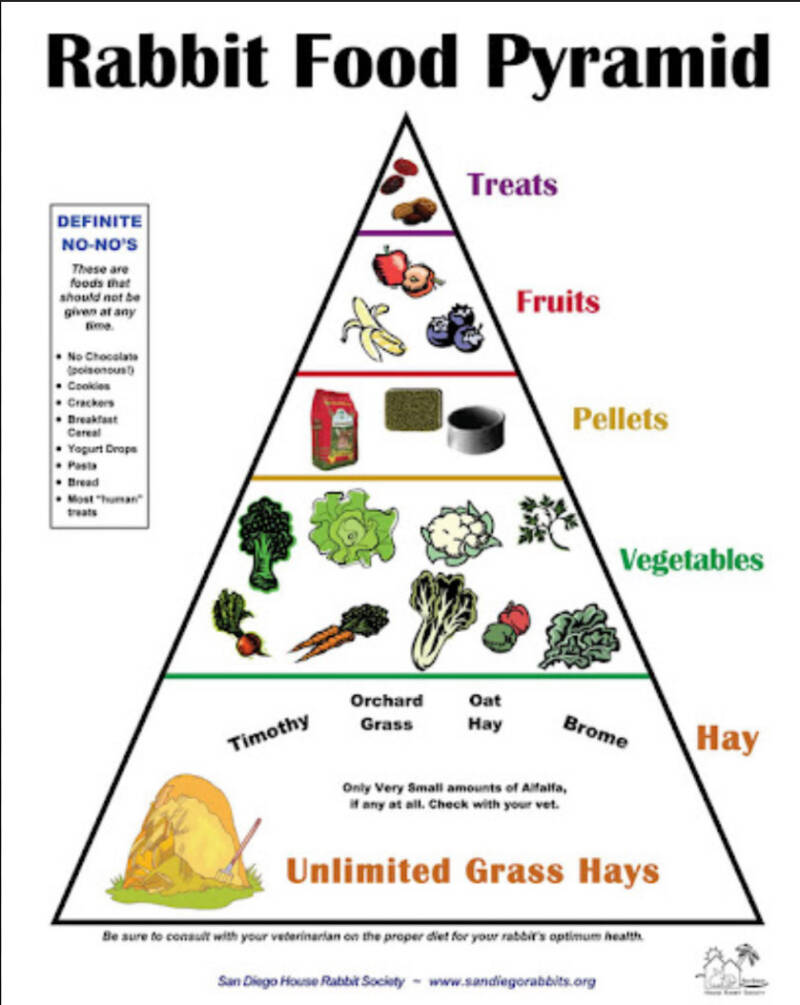Down below will cover everything you need to know before taking your bunny into your home and when they are home! i would also recommend reading through this before purchasing a bunny
Living space
When deciding on a living space for your bunny, the choice between free-roaming and a large enclosure is crucial for their physical and mental well-being. Free-roaming provides the most natural and stimulating environment, allowing bunnies to hop, explore, and express their natural behaviors. This setup requires bunny-proofing your home to remove hazards like electrical cords and toxic plants, but it gives your bunny the freedom to exercise and interact with their surroundings. A large enclosure, on the other hand, offers a secure and controlled space, which is particularly useful if you can't supervise your bunny constantly.
Regardless of your choice, providing a large area is essential for several reasons. Bunnies are active animals that need space to hop, run, and stretch. A cramped living space can lead to boredom, frustration, and even health problems like obesity and muscle atrophy. A spacious environment allows them to exhibit natural behaviors such as digging, foraging, and exploring, which are vital for their mental stimulation and emotional well-being. Whether it's a large enclosure or a bunny-proofed room, ensure your bunny has ample space to move around and engage in these activities.
Moreover, a larger living space allows for better enrichment opportunities. You can include a variety of toys, tunnels, and hidey-houses to keep your bunny entertained and prevent boredom. A spacious area also makes it easier to maintain a clean and hygienic environment, reducing the risk of health issues. Regular cleaning is essential, but a larger space means waste is less concentrated, contributing to a healthier living environment. Ultimately, providing a big area, whether through free-roaming or a large enclosure, is an investment in your bunny's happiness and health, ensuring they lead a fulfilling and active life.
Diet
Hay and pellets are essential components of a bunny's diet, each serving distinct but crucial roles in maintaining their health. Hay, primarily Timothy, orchard, or meadow hay, provides the necessary fiber that supports a bunny's digestive system, preventing issues like GI stasis. The act of chewing hay also helps to naturally wear down their constantly growing teeth, preventing dental problems. Pellets, on the other hand, offer a concentrated source of vitamins and minerals that may not be adequately obtained from hay alone. However, pellets should be given in limited quantities to prevent overfeeding and obesity, ensuring that hay remains the primary component of their diet. Together, hay and pellets provide a balanced nutritional foundation that supports a bunny's overall well-being.
Water is another critical component of a bunny's diet, essential for hydration and proper bodily functions. Fresh, clean water should always be available, either in a water bottle or a heavy ceramic bowl. Regularly check the water source to ensure it's clean and accessible, and replace it daily to prevent bacterial growth. Avoid giving your bunny sugary treats, processed foods, or foods high in starch, as these can disrupt their digestive system and lead to health problems. By providing a balanced diet consisting of hay, pellets, fresh vegetables, and clean water, you can help your bunny thrive and enjoy a long, healthy life.

Safe greens for bunnies


Unsafe greens for bunnies

Bunny care
Bunny care involves several key aspects to ensure your furry friend lives a happy and healthy life. First and foremost is providing a proper habitat. Bunnies need a spacious cage or enclosure that allows them to move around comfortably. The floor should be solid and covered with a soft, absorbent bedding material like hay or paper-based bedding. The enclosure should be kept clean and dry, with daily spot cleaning and a full cleaning at least once a week to prevent the buildup of harmful bacteria. Additionally, the enclosure should be placed in a quiet area away from direct sunlight and drafts, as bunnies are sensitive to extreme temperatures.
Proper nutrition is another crucial element of bunny care. A bunny's diet should consist primarily of high-quality hay, such as Timothy hay, which provides essential fiber for their digestive health. Fresh, clean water should always be available, either in a water bottle or a heavy ceramic bowl. Pellets, specifically formulated for rabbits, can supplement their diet, but should be given in limited quantities to prevent overfeeding. Fresh vegetables, such as leafy greens like romaine lettuce and kale, can also be offered in moderation, but it's important to avoid sugary treats and processed foods that can harm their digestive system.
Regular grooming is also essential for maintaining your bunny's health and well-being. Bunnies are naturally clean animals, but they require assistance with grooming, especially during shedding seasons. Regular brushing helps to remove loose fur, preventing them from ingesting too much hair during self-grooming, which can lead to digestive issues. Nail trimming is also necessary to prevent overgrowth, which can cause discomfort and difficulty moving. Additionally, bunnies should be checked regularly for any signs of health problems, such as dental issues, skin problems, or changes in appetite or behavior.
Bunnies are very social animals and need lots of time out of their cages if they arent free roaming.
i always recommend considering adopting a pair for companionship! The best pairs are male & female , 2 females are good together aswell though! i would only ever recommend having 2 males together if they are from the same litter , they will need to be fixed. males may start fighting once they reach sexual maturity. make sure you provide you bunny with lots of toys for your bunny to keep them entertained
Finally, providing mental and physical stimulation is vital for a bunny's overall happiness. Bunnies are intelligent and curious animals that need opportunities to exercise and engage their minds. Provide them with toys, such as chew toys, tunnels, and cardboard boxes, to keep them entertained and prevent boredom. Spend time interacting with your bunny, whether it's through gentle petting, playing games, or simply allowing them to explore a safe, bunny-proofed area. Regular interaction and enrichment can help strengthen the bond between you and your bunny, ensuring they live a fulfilling and enriching life.
Things you need before bringing your bunny home
Before bringing your bunny home, it's essential to set up a comfortable and safe environment to help them adjust to their new surroundings. Start by preparing their living space, which should include a spacious cage or enclosure that allows them to move around freely. The cage should have a solid bottom to prevent sore hocks, and it should be lined with soft, absorbent bedding such as hay or paper-based bedding. Place the cage in a quiet area away from direct sunlight and drafts, as bunnies are sensitive to extreme temperatures. Ensure the enclosure is equipped with essential items like a food bowl, a water bottle or bowl, and a litter box filled with bunny-safe litter.
In addition to setting up their living space, it's important to gather the necessary supplies to care for your bunny's basic needs. Stock up on high-quality hay, such as Timothy hay, which should make up the majority of their diet. Purchase rabbit-specific pellets to supplement their hay intake, but be sure to feed them in moderation to prevent overfeeding. You'll also need fresh vegetables, such as leafy greens, to provide essential vitamins and minerals. Other essential supplies include grooming tools like a brush and nail clippers, as well as chew toys to help keep their teeth healthy and prevent boredom.
Finally, bunny-proof your home to ensure their safety when they're outside of their cage. Bunnies love to chew, so it's important to protect electrical cords, furniture, and anything else they might nibble on. Cover or remove any toxic plants, and store cleaning supplies and medications out of their reach. Block off any areas where they could get stuck or injured, such as under furniture or behind appliances. By taking these precautions, you can create a safe and stimulating environment for your new bunny to explore and enjoy.
what you will need :
- pellets
- hay
- water + food bowl
- litter box ( 2 is recommended )
- toys ( such as stacking cups , any kind of high quality safe toys)
- X- pen if not free roaming
- greens
- nail trimmers
- brush
- first aid kit
Having a first aid kit specifically for bunnies is important for addressing minor injuries and health issues promptly. Unlike cats or dogs, bunnies are prey animals and tend to hide signs of illness or pain, making it essential to be prepared for emergencies. A well-stocked first aid kit allows you to provide immediate care for common bunny ailments such as minor cuts, wounds, or digestive upset. It can also help stabilize your bunny until you can get them to a veterinarian for professional treatment. By having the necessary supplies on hand, you can minimize your bunny's discomfort and potentially prevent a minor issue from escalating into a more serious problem.
what to have in a bunny first aid kit
- critical care
Critical Care is a powdered food supplement that's super important to have for bunnies because they can quickly become ill if they stop eating. Bunnies need to constantly eat to keep their digestive system moving. If they get sick, stressed, or have dental issues, they might lose their appetite. Critical Care is designed to be easily digestible and provides essential nutrients, fiber, and calories to help them get back on track. It's usually mixed with water to form a slurry that can be syringe-fed, ensuring they get the nutrition they need until they start eating on their own again. Having Critical Care on hand can be a lifesaver, preventing serious complications like gut stasis, which can be fatal in bunnies.
- artificial tears
Artificial tears are important to have on hand for bunnies because they can help address eye issues quickly. Bunnies can sometimes get dust, debris, or hay particles in their eyes, leading to irritation or minor scratches. Artificial tears help to lubricate the eye, flushing out any irritants and providing relief. They can also be useful if your bunny has dry eyes or is experiencing mild inflammation. Keeping artificial tears on hand allows you to provide immediate comfort and prevent minor eye issues from becoming more serious, ensuring your bunny's eyes stay healthy and clear.
- styptic powder
Styptic powder is important for bunnies because it helps to quickly stop bleeding from minor cuts, especially from nail trims. If you accidentally cut the quick while trimming your bunny's nails, it can bleed quite a bit, and styptic powder can stop the bleeding fast. It contains ingredients that promote blood clotting, preventing further blood loss and reducing the risk of infection. Having styptic powder on hand ensures you can handle nail-trimming mishaps effectively and keep your bunny safe and comfortable.
still editing i will add more soon!
Litter training
Litter training a bunny involves setting up a designated litter box and encouraging your bunny to use it. Start by placing the litter box in a corner of your bunny's enclosure, as bunnies often choose a specific spot to go to the bathroom . Put some of your bunny's droppings and urine on a paper towel into the litter box to help them recognize it as the appropriate place to go. You can also place hay in the litter box, as bunnies often like to eat hay while they poop, which can further encourage them to use the box.
Observe your bunny's habits and whenever you see them going to the bathroom outside the litter box, gently scoop up the droppings and wipe anything that has pee on it and place them in the litter box. Clean the area where they went outside the box with a bunny-safe cleaner to eliminate the scent, which will discourage them from going there again. Each time your bunny uses the litter box, offer them a small treat or some praise to reinforce the positive behavior.
Consistency and patience are key to successfully litter training a bunny. It may take some time for your bunny to fully understand and consistently use the litter box. Continue to reinforce good habits by rewarding them when they use the box and cleaning up accidents often. With persistence and positive reinforcement, most bunnies can be successfully litter trained, making it easier to keep their living space clean and hygienic.
Bonding with your bunny
Bonding with your bunny is a rewarding process that involves building trust and creating a strong connection. Start by spending time near your bunny's enclosure or near them , talking softly and offering treats. This helps your bunny get used to your presence and associate you with positive experiences. Avoid reaching into the enclosure or making sudden movements, as this can startle your bunny and make them feel unsafe. Let your bunny approach you on their own terms, allowing them to sniff you and get comfortable.
Once your bunny seems relaxed around you, begin spending time sitting on the floor with them in a safe, enclosed area. Allow them to explore and come to you. You can offer treats from your hand or gently pet them if they allow it.
Engage in activities that your bunny enjoys, such as providing toys, grooming, or gentle petting. Observe your bunny's body language to understand their preferences and boundaries. If they move away or seem uncomfortable, respect their space and try again later. Regular grooming sessions can be a great way to bond with your bunny, as they often enjoy the attention and it helps to remove loose fur.
Consistency and patience are essential for building a strong bond with your bunny. Spend time with them regularly. Over time, your bunny will learn to trust you and see you as a source of comfort and companionship. A strong bond with your bunny will enhance your relationship and bring joy to both you and your furry friend.
The first day home
Bringing a new bunny home is an exciting time, but it's important to be prepared for their arrival to ensure a smooth transition. Before you pick up your bunny, set up their enclosure in a quiet area of your home, away from loud noises and heavy foot traffic. Include a litter box, food and water bowls, hay, and some toys to keep them entertained. Make sure the enclosure is secure and bunny-proofed to prevent any accidents or escapes.
When you first bring your bunny home, handle them gently and place them in their enclosure. Allow them to explore their new surroundings at their own pace. Avoid overwhelming them with too much attention or handling, as this can cause stress. It's normal for your bunny to be shy or scared at first, so give them time to adjust and feel safe.
Observe your bunny's behavior to get a sense of their personality and preferences. Some bunnies may be curious and outgoing, while others may be more reserved and cautious. Pay attention to their eating and drinking habits, as well as their litter box usage. If you notice any signs of illness or distress, such as loss of appetite, lethargy, or diarrhea, consult with a veterinarian experienced in rabbit care.
Start building a bond with your bunny by spending time near their enclosure, talking softly and offering treats. This helps them get used to your presence and associate you with positive experiences. Avoid reaching into the enclosure or making sudden movements, as this can startle them. Let your bunny approach you on their own terms, allowing them to sniff you and get comfortable.
Be patient and understanding as your bunny adjusts to their new home. It may take some time for them to fully settle in and feel comfortable. Provide them with a safe and loving environment, and they will gradually come out of their shell and show their true personality. With patience and consistency, you can build a strong bond with your new bunny and enjoy many years of companionship together.
Grooming
you should be brushing you bunny at least once a week to make prevent matting and to reduce shedding!
check your bunnies nails regularly and trim them as needed
Veterinary care
It is very important to make sure you are always keeping an eye on your bunnies health , make sure to watch for any signs of illness such as behavioral changes , dental issues. a few other signs your bunny isnt feeling well is eating less or refusing to eat ,hiding, or not drinking water.
at 4-6 months old you should spay/ neuter to prevent unwanted pregnancies when having bonded rabbits , female rabbits have a 85% chance of getting uterine cancer if they are not spayed by the age of 3 , and to prevent spraying and unwanted behaviours , aggression , and sometimes false pregnancies.


Create Your Own Website With Webador